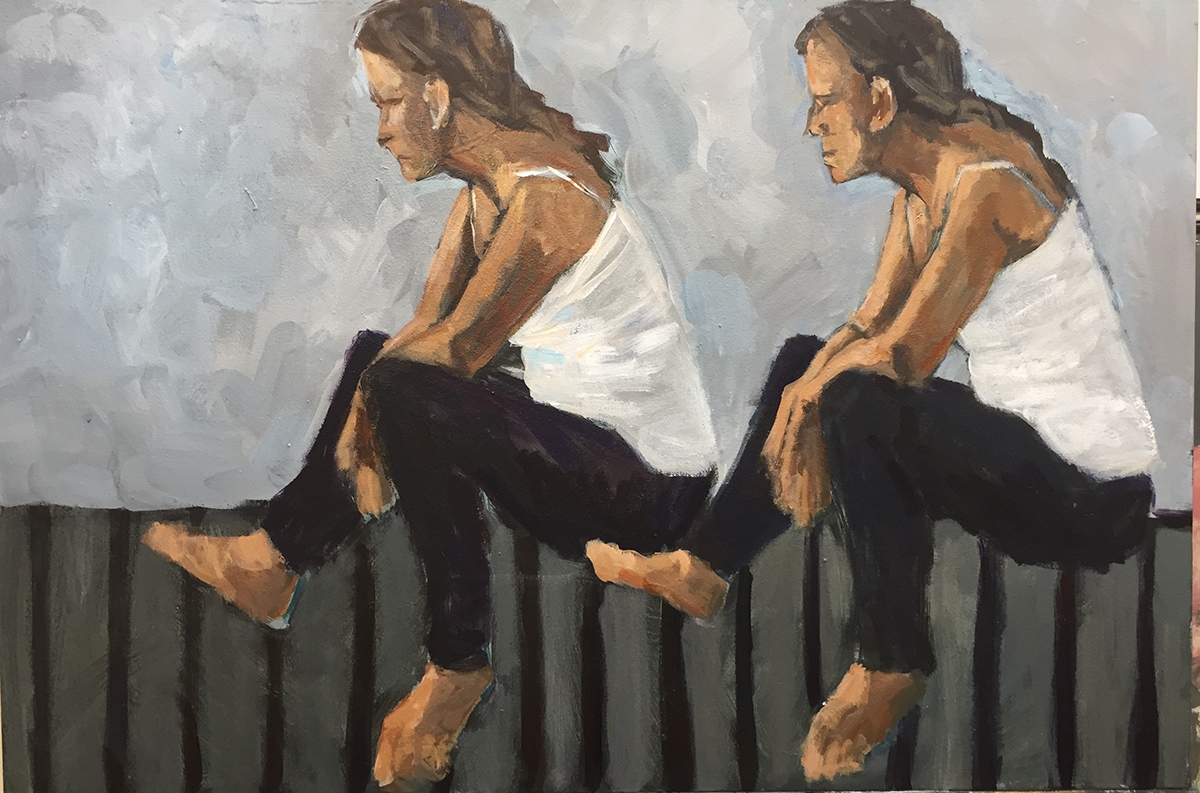
Alexandria Maillot gets collaborative
Not every record goes as planned. For Alexandria Maillot’s Benevolence, a friend from British Columbia’s offer to record in Montreal utterly reshaped a few songs into an album. With new players, songs and a process that went beyond her own creativity as well, Maillot came out with a record outside of what she’d planned. We caught up with Maillot ahead of her November 13, 2019 show at Live on Elgin to discuss her large album cast, visual narratives and touring.
Ottawa Life: You co-produced with Samuel Hewson Woywitka so how did you find both of your roles balancing out in that respect?
Alexandria Maillot: Sam and I grew up in the same area on Vancouver Island, but we didn’t meet each other until we had been living elsewhere in Vancouver. When I was travelling through Montreal, Sam had access to a studio he was working at there. I was staying with him since I was on tour and he was telling me about the studio he worked at run by Indica Records. He explained he could get the space cheaply, he had the time and he was stoked on my material. I had a few songs written at the time, so I hadn’t planned on making an album out of it when I started in 2017. So over the course of two or three months I was sending him demos while I was travelling, and then he would ask me to try different things with the songs. At that point I didn’t really have an idea of what the album would sound like. So pre-production became a Skype’d and telephoned process. So by the time I got to Montreal we were laying out some bed tracks, and we had a rock-experimental energy going. We played around with a lot of sounds in the studio, we honed in the guitar sounds to get the instruments to work together. He was so integral to arranging and finding the intention of the songs on the record.

You had a rather large cast playing across the album too, so how did so many people get involved?
AM: Sam also had a wealth of friends that are musicians in Montreal already, so we could access all those people through him. He made those introductions and the album turned into this very collaborative experience. I would fly between Vancouver and Montreal several times. One of our songs “The Judge” had this definitive ending, and then the drummer worked with Sam tried some things I’d never done before. The drums just kept going and built in a way I would’ve never thought of. We brought a string section in too, so the song took on this life of its own. It was an experience because it can often just be me and the producer playing all the instruments. But this was totally different and it opened my eyes to how beautiful collaboration is. These people were really able to use their own voices on this record, and add these parts I hadn’t thought of that were perfect for the record.
How has it been trying to consolidate that many voices on the record down into a tour-ready package?
AM: That’s a great question because I’d often thought, if I’m not the one playing it, then how do I translate that on tour. The thing that’s limited me recording was thinking of the production going into the live show. My band is currently in parts of B.C. but we all tour together. We’re really trying to make sure it all makes sense live. Our bass player is insane and can play anything too. I’ve found all these people I trust, and who are good friends, and they’re helping me do this. The one thing I like about live shows though is playing with the music on stage to give it its own life. So though we are emulating the album live as best we can, we are using our freedom to play around. It’s become its own thing now. Some people will get sample pads and use stems and bits from the record. We’re trying to play around with those parts from the record, and then seeing if there’s other parts we can bring out. I do find on stage I’m having anxiety about doing something wrong, so with those samples it can be really stressful, especially since I’m not as familiar with them. We’re already using a lot of pedals now so I find it stressful to think about playing to tracks.
I wanted to hear about Sterling Larose’s video for “The Judge,” and how it was following up the “Messed It Up” story while keeping its own unique emotions?
AM: The intention behind those songs were coming from the same consciousness. I wrote Benevolence when I was leaving my home behind, I have health issues, I had three jobs and friends and a partner that I was leaving too. “Messed It Up” was looking at it all as taking the easy way out. “The Judge” was looking at all these choices I’ve made and that my friends have made in their lives and saying “These were the choices we had to make.” It’s looking at whether those choices make you a bad person and saying “You needed to make that to save yourself.” For the video portion we had this idea that they would be from different perspectives. So “Messed It Up” is these characters in the moment, aware of what’s happening. “The Judge” sees it all as a memory so we can show the aftermath of those choices.
Photos: https://alexandriamaillot.bandcamp.com/ and Indoor Recess PR









